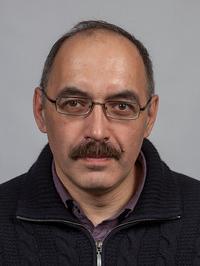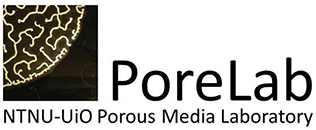Welcome to the next PoreLab lecture!

Who: Associate Prof. Alexander Shapiro from the Technical University of Denmark (DTU)
Alexander has been at the forefront of the development of stochastic methods in the theory of deep bed filtration. His research has covered both theoretical and practical aspects of complex flows in porous media and their applications
When: Wednesday May 15th at 13:00 CEST (Norway time).
Where: The talk will be streamed in both Kelvin room (PoreLab Oslo) and the in the common room (PoreLab Trondheim). From anywhere else, you will be able to join via the following Zoom link:
https://uio.zoom.us/j/65837085049?pwd=WjZianUyN3FJa2liQkxBbzQrOCtGdz09
Title: Continuous upscaling
Abstract:
Alexander Shapiro1
1Center for Energy Resources Engineering (CERE), DTU Chemical and Biochemical Engineering
Modeling of many natural and industrial processes requires their description on multiple scales. The transition between the different scales is carried out by employing a mathematical procedure of upscaling (averaging). The variety of the areas of application is reflected in the multiplicity of the names for the upscaling operation: in different works, it is called “averaging”, “homogenization”, “spatial filtering” or “coarse-graining”. Essentially, all the areas of macroscopic physical science operate with somehow averaged values: even such a common property as density looks differently on the molecular scale and in the empirical macroscopic thermodynamics.
Several methods of averaging have been proposed in the literature, like the volume-average theory (VAT), or “hat averaging”. These methods employ a degree of arbitrariness and asymptotic transitions, which are sometimes difficult to validate mathematically.
Our effort during the last years was concentrated on the development of a novel method of continuous averaging. According to this method, an “axis of scales”, from fine to coarse, is introduced. The physical values undergo a gradual smoothing transformation of the original fine-scale problem along the “axis of scales” s, with the progressing degree of averaging as s increases. The gradual averaging of densities and fluxes is described by a partial differential equation similar to the equations of stochastic processes. The general rules for such upscaling are derived. Upscaling of densities, fluxes, non-convective fluxes, transport coefficients is considered.
The method has been applied to a classical model problem, the steady-state diffusion. We have managed to derive the equations for upscaling the diffusion coefficients and to obtain analytically their asymptotic values. A particular question, studied recently, is, whether the different upscaling procedures result in the same or different coarse-scale models; moreover, whether the solutions of the coarse-scale equations provide a reasonably accurate description of the fine scale. The study of diffusion shows that this is not always the case.
